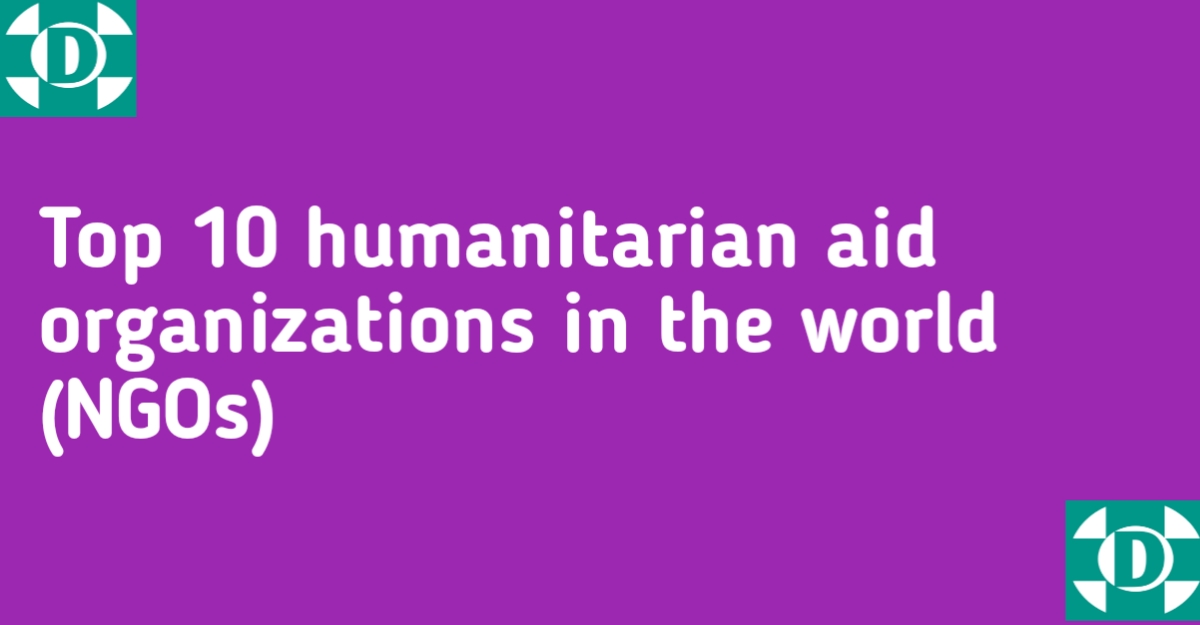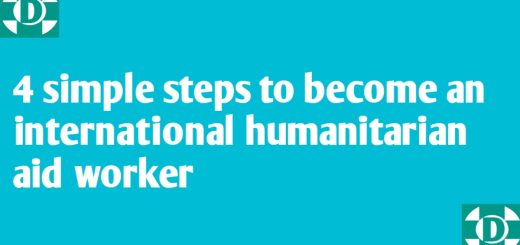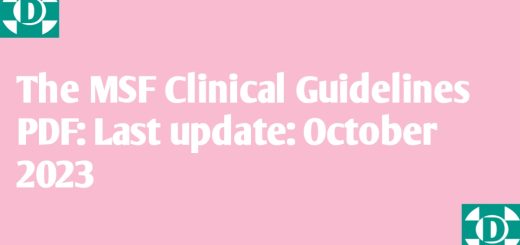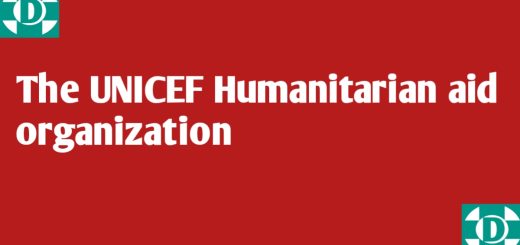Top 10 humanitarian aid organizations in the world (NGOs)

Top 10 humanitarian aid organizations
Million of people in the world are facing life challenge from conflicts, disaster, and epidemics, as result hundred thousand lost their lives from hunger, malnutrition, majority were displaced resulting in no homes to live making them gather in a refugee camps. Some lost parents, children, and their love ones.
These results from humanitarian crisis, Thanks to the humanitarian organizations such as International Federation Red Cross and Red Crescent (IFRC), The World Health Organization, UNICEF, AmeriCares, Save the Children, Catholic Relief Services, CARE International, World Vision, Direct Relief, World Food Programme (WFP), Doctors Without Borders Action, Against Hunger, International Rescue Committee, International Medical Corps for their humanitarian assistant to the people.
They are called humanitarian aid organizations, also known as NGOs, they provide assistance to people suffering from a disaster, epidemic, and arm conflicts.
Although, there are million of humanitarian organization worldwide, here we are going to talk about the top 10 most popular, largest humanitarian aid organization.
Before we go to the list of the humanitarian organization let us talk about the meaning of the humanitarian organization to increase our understanding.
Read also: How to become a humanitarian doctor work NGO
What are humanitarian aid organizations?
Humanitarian aid organization or call them humanitarian NGOs, are organization that give aid people who are suffering, particularly victims of armed conflict, famines, and natural disasters. These organization are sometimes called relief societies.
Purpose of humanitarian aid organization (NGO)
Humanitarian NGOs work to improve live of vulnerable population by giving assistance to people affected with conflict, epidemics, human and natural disaster regardless of their origin, culture, race or religion. They work based on the humanitarian principles of neutrality, impartiality, independent and medical ethics, these are the principles that guide humanitarian activities.
Mission and goals
NGO mission is to help people in conflicts, disaster and epidemic by providing medical and non-medical assistance to alleviate their suffering and improve their health.
NGOs’ goal is to provide quality and long lasting impact on the live of the affected society there by ensuring quality education, skills and better social security to the community.
Read also: Nurse practitioner Aspirant, Best steps become one in 2024
List of Humanitarian Organization programs and initiative
- Emergency relief
- Disaster response
- Healthcare and medical assistance
- Food distribution
- Nutritional support
- School and education programs
- Water, Sanitation, and Hygiene (WASH)
Roles of humanitarian organization
Humanitarian aid organizations, operate independently and their goal is principally to save lives and alleviate suffering and to uphold relevant international humanitarian standards, especially through protection activities.
All actions of humanitarian organization are guided by the humanitarian principles of impartiality, independence, humanity and neutrality. These are the main four humanitarian principles recognized by all humanitarian NGOs including UN, ICRC.
Below are some of the humanitarian organizations and their roles:
Read also: How to become a humanitarian doctor work NGO
Medecins Sans Frontieres (MSF) Role
According to the MSF, the organization provide medical care to help people survive catastrophic situations, where communities and health structures may be overwhelmed. Our core work is providing emergency medical assistance in situations of armed conflict. Our actions are guided by medical ethics and the principles of neutrality and impartiality.
International Committee of Red Cross (ICRC) Role
The International Committee of the Red Cross (ICRC) is an impartial, neutral and independent organization whose exclusively humanitarian mission is to protect the lives and dignity of victims of armed conflict and other situations of violence and to provide them with assistance.
World Health Organization (WHO) Role
WHO works worldwide to promote health, keep the world safe, and serve the vulnerable. Their goal is to ensure that a billion more people have universal health coverage, to protect a billion more people from health emergencies, and provide a further billion people with better health and well-being.
Save the Children Role
Save the Children exists to help every child get the future they deserve. In the UK and around the world, we make sure children stay safe, healthy and keep learning, so they can become who they want to be. They work means investing in children’s futures and empowering families to support themselves.
The roles of most humanitarian aid organizations, are to help vulnerable people to have good health and better future. They work independently to save life of the people in need regardless of their age, origin, economic background. They under the guide of humanitarian principles.
Read also: How to become a nurse in UK 2024
The International Federation of Red Cross and Red Crescent Societies (IFRC)
The IFRC is the international humanitarian organization that deliver humanitarian assistance to people in need founded by Henry Dunant in 5 may 1919 in France.
As worldwide humanitarian aid organization, the IFRC humanitarian aid reach about 160 million people in the world every year. IFRC deliver their humanitarian aids through its 191 members National Societies.
The IFRC is the world’s largest humanitarian network, comprising 191 National Red Cross and Red Crescent Societies working to save lives, build community.
Understand the meaning of national societies
National Societies are the important part of the International Red Cross and Red Crescent Movement. Each one is made of unique network of community-based volunteers and staff who provide a wide variety of services.
Roles of national society
The specific role of National Societies and the services they provide depend and varies country by country. This is due to the different needs of communities, as well as the different relationships National Societies have with their respective authorities.
National Society volunteers are often first on the scene when a disaster strikes. And they remain active within affected communities long after everyone else has left. In some cases, National Societies are the only organizations able to operate in countries experiencing disasters, conflicts, or a collapse in their social fabric.
World Health Organization (WHO)
The World Health Organization was founded in 7 April 1948 and is a specialized agency of the United Nations (The parent organization) The WHO is responsible for international public health, headquartered in Geneva, Switzerland, and has six regional offices and 150 field offices worldwide.
WHO Structure
The organisation’s headquarters is in Geneva, Switzerland. with 194 Member States, 150 Country Offices, and six Regional Offices in the Organisation. It is an intergovernmental organisation that collaborates with its member nations, generally through their health ministries.
Read also: Steps to become a nurse in (UAE) united Arab emirates in 2024
World Health Organization Member States
All countries which are Members of the United Nations may become members of WHO by accepting its Constitution. Other countries may be admitted as members when their application has been approved by a simple majority vote of the World Health Assembly.
World Health Assembly (WHA)
The World Health Assembly (WHA) is the forum through which the World Health Organization (WHO) is governed by its 194 member states. It is the world’s highest health policy setting body and is composed of health ministers from member states. World Health Assembly. Abbreviation. WHA.
Regional offices and regions of the WHO
- Africa: African Region (AFR); HQ: Brazzaville, Congo
- Americas: Region of the Americas (AMR); HQ: Washington, DC, USA.
- South East Asia: South-East Asian Region (SEAR); HQ: New Delhi, India.
- Europe: European Region (EUR); HQ: Copenhagen, Denmark.
- East Mediterranean: Eastern Mediterranean Region (EMR); HQ: Cairo, Egypt.
- Western Pacific: Western Pacific Region (WPR); HQ: Manila, Philippines.
Function of WHO
It is responsible for providing leadership on global health matters, shaping the health research agenda, setting norms and standards, articulating evidence-based policy options, providing technical support to countries and monitoring and assessing health trends.
Member of the United Nation
The UN’s Membership has grown from the original 51 Member States in 1945 to the current 193 Member States. All UN Member States are members of the General Assembly. States are admitted to membership by a decision of the General Assembly upon the recommendation of the Security Council.
Read also: Doctors Without Borders Salary – MSF Nurses By Country
The UNICEF
UNICEF is a humanitarian aid organization founded by Ludwik Rajchman, United Nation General Assembly in 11 December 1946, the is now officially called United Nations Children’s Fund, before it was United Nations International Children’s Emergency Fund.
It is an agency of the United Nations responsible for providing humanitarian and developmental aid to children worldwide.
Function and Role of UNICEF
UNICEF works in over 190 countries and territories to save children’s lives, to defend their rights, and to help them fulfil their potential, from early childhood through adolescence. And we never give up.
UNICEF is the UN organization mandated to protect the rights of every child, everywhere, especially the most disadvantaged, and is the only organization specifically named in the Convention on the Rights of the Child as a source of expert assistance and advice.
Save the Children
Save the Children is a charity and leading humanitarian organization for children. Our charity has changed the lives of over 1 billion children in the U.S. and around the world.
Save the children was founded by Eglantyne Jebb in 1919 to save the life of the children dying from hunger and the deadly disease after the end of the First World War.
For over 100 years now save the children is helping children to have good beginning and the opportunity to learn and protection from harm. When crisis strikes and children are most vulnerable, Save the Children are always among the humanitarian organization that is first to respond and the last to leave. They do whatever it takes for children – every day and in times of crisis – transforming their lives and the future we share.
Save the Children function
Through our programming, emergency responses and advocacy, we put the most vulnerable children first. save the children’s work saves and improves children’s lives around the world. we work to ensure children have healthcare, food and shelter, as well as learning and child protection services when children need it most.
Médecins Sans Frontières
The Médecins Sans Frontières, Abbreviation MSF meaning doctors without boarder in English, Is a medical humanitarian aid organization that give assistance to people affected with conflict, disaster and endemic disease.
MSF was founded in 22 December 1971 by a group doctors and journalists at France, MSf has six operational center, main organ is International General Assembly. The organization serve people in need worldwide and currently have about 43, 375 employees and the Revenue (2020) €1.9 billion.
Their actions are guided by the humanitarian principles of neutrality, impartiality, independent and humanity.
Médecins Sans Frontières Role
Médecins Sans Frontières provide medical care to help people survive catastrophic situations, where communities and health structures may be overwhelmed. Our core work is providing emergency medical assistance in situations of armed conflict. As we early stated MSF’s actions are guided by medical ethics and the principles of neutrality and impartiality.
The MSF operational Centres:
MSF has six Operational Centres (OC). An Operational Centre is a group of sections that provide guidance and support to the operations in the field.
- Amsterdam (OCA)
- Barcelona-Athens (OCBA)
- Brussels (OCB)
- Paris (OCP)
- Geneva (OCG)
- West and Central Africa (WaCA)
Americares
Americares is a global humanitarian aid organization founded in 1979 by Robert Macauley and Alma Jane Macauley that focused on health and development, AmeriCares responds to individuals affected by poverty, disaster, or crisis. The organization addresses poverty, disasters, or crises with medicine, medical supplies and health programs. Revenue: 663.8 million USD (2011).
According to them, Americares is a health-focused relief and development organization that saves lives and improves health for people affected by poverty or disaster. For more than 40 years, we have met the health needs of our local partners and their communities.
AmeriCares Role
Americares is a health-focused relief and development organization that saves lives and improves health for people affected by poverty or disaster. Since it was established more than 40 years ago, Americares has provided $22 billion in aid to 164 countries, including the United States.
International Rescue Committee
The International Rescue Committee (IRC), is one of the humanitarian aid organizations, IRC responds to the world’s worst humanitarian crises and helps people to survive and rebuild their lives. IRC was founded in July 24, 1933, it serves worldwide to assist people whose lives have been affected by conflict and disaster.
In 2020 the organization reported the Revenue of about $825.6 million and the Expenses $808.3 millio.
International Rescue Committee Roles
The International Rescue Committee responds to the world’s worst humanitarian crises, including the conflict in Ukraine and the crisis in Afghanistan. We help to restore health, safety, education, economic wellbeing and power to people devastated by conflict and disaster.
Against Hunger.
The Action Against Hunger, is a global humanitarian aid organization that takes decisive action against the causes and effects of hunger.
More than two million children die from hunger each year. Action Against Hunger works in more than 50 countries to save lives and help children grow strong.
Function of Action Against Hunger
Action against hunger, save the lives of malnourished children. We ensure everyone can access clean water, food, training and healthcare. We enable entire communities to be free from hunger.
Care International Function
CARE is a major international humanitarian agency delivering emergency relief and long-term international development projects. Founded in 1945, by Arthur Cuming Ringland and Wallace Campbell. CARE is nonsectarian, impartial, and non-governmental. It is one of the largest and oldest humanitarian aid organizations focused on fighting global poverty.
Care International Function
CARE International is a 75-year-old global confederation working to fight poverty and social injustice in the world, with a specific focus on the empowerment of women and girls.
World Vision
Empowering children and communities out of poverty, For good. World Vision International is an ecumenical Christian humanitarian aid, development, and advocacy organization. It was founded in 1950 by Robert Pierce as a service organization to provide care for children in Korea. In 1975, emergency and advocacy work was added to World Vision’s objectives.
Read also: Nurse practitioner Aspirant, Best steps become one in 2024
World Vision Function
World Vision is an international partnership of Christians whose mission is to follow our Lord and Savior Jesus Christ in working with the poor and oppressed to promote human transformation, seek justice, and bear witness to the good news of the Kingdom of God.
The above 10 humanitarian aid organizations contributed a lot in helping people in the world in different sectors.
You can learn about them all by reading this article. Thanks for your time with Us.
How about getting a Job in Humanitarian aid Organizations
Humanitarian NGOs have specific jobs that they are offering as we have mentioned above that the organization mostly focused on helping people suffering (humanitarian aid) to people in need independently and away from a government decision or any particular group.
NGOs work or jobs (also known as humanitarian workers and development workers) manage projects in areas affected by arm conflicts natural disasters and other diseases conditions such as cholera outbreak or malnutrition, and other problems.
On the e other hand Aid workers (NGO workers) support communities that have been impacted by human or natural disasters.
To work in NGO as a medical, logistics or administrative staff there are certain knowledge and experience you need that can guide you to excel well including knowing your job responsibility, understanding the humanitarian organization that you are working with, sticking to their principles and excellence communication skills, it’s good to know NGO programs and initiatives below are the list.
They are among the humanitarian programs and initiative, and these programs depends on the type of the organization and what they do.
If you are a health professional or school teacher it’s very important to understand what kind of NGO you have to work with.
Due to different NGOs do render activities, so depending on your interest and qualifications you need to select the one you prepare, below are some specific skills and qualities that will help you get start to work in NGO.
Skills and qualities
- A passion for helping people.
- To be able to cope with distressing situations.
- To get on well with all types of people.
- Stamina – being a Humanitarian Aid Worker can be hard work and demanding.
- Excellent listening skills.
- A caring and empathetic nature.
- The ability to ask the right questions to help others.


